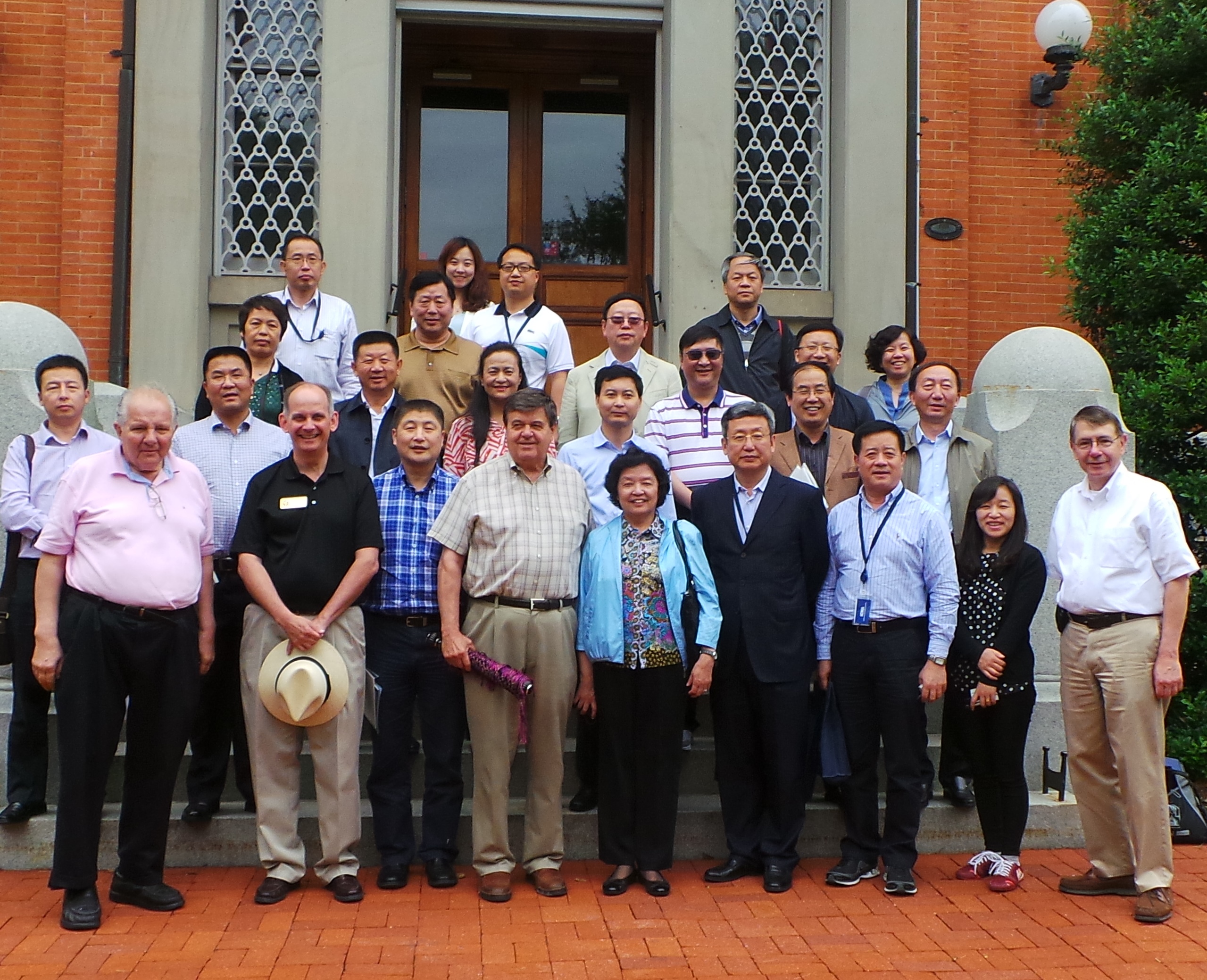
The ICMA China Center hosted 20 senior Chinese government officials for an intensive six-day study tour and training seminar, “Working Towards Energy Conservation and Urban Sustainable Development,” in the Washington, D.C., area on June 5-10. The officials represented cities, provinces, ministries, and other regional and national bodies. City officials came from jurisdictions ranging in population from 1.3 million to 8.4 million.
The program was part of the China Mayors Training Program, organized by the Organization Department of the CPC Central Committee. It was carried out by the National Academy for Mayors of China, which operates under the Ministry of Housing and Urban-Rural Development (MOHURD), and was implemented by ICMA with the sponsorship of the Energy Foundation. The group was led by Madame Du Juan, a vice ministerial-level official in MOHURD.
EcoPartnerships
The ICMA China Center, a partnership between ICMA and the China University of Political Science and Law, is a member of the EcoPartnerships program of the U.S. Department of State. EcoPartnerships are cooperative relationships between Chinese and U.S. entities that jointly demonstrate and share best practices to promote economic growth, energy security, and environmental sustainability. This study tour is an example.
The Mayors Training Program is designed to familiarize participants with the U.S. experience and best practices. This year’s focus is on energy policy, energy planning and management, energy conservation standards for buildings, public infrastructure energy efficiency management, and low-carbon eco-city development. Sessions took place in Washington and San Francisco.
In Washington, the group was welcomed by ICMA Executive Director Robert J. O’Neill, who provided an introduction to local government in the United States. Officials and staff from area local governments conducted a roundtable on low carbon development, energy efficiency, urban planning, sustainable development and performance measurement.
Study Tour Highlights
Over the next few days, the study tour itinerary included the following:
- The Urban Land Institute for a discussion of urban planning in the United States and China and a tour of areas of the Georgetown area of Washington, where redevelopment has incorporated adaptive reuse and “green” buildings
- The Center for Climate Strategies at the Johns Hopkins University Center for Advanced Governmental Studies to learn about energy-saving strategies and about urban planning programs in the two countries
- The U.S. Trade and Development Agency for a case study on smart grid demand response
- The Global Environmental Facility (GEF) at the World Bank to learn about GEF’s program to support sustainable development in Chinese cities
- The Metropolitan Washington Council of Governments (COG) to review the organization’s Climate and Energy Action Plan goals on clean energy, transportation, and air quality and the accomplishments under COG’s Climate, Energy and Environmental Policy Committee for the D.C. Sustainability Plan
- The Montgomery County (Maryland) waste-to-energy facility and comprehensive resource recycling facility for a presentation and tour
- Frederick, Maryland, for roundtables on local governance, urban planning, and energy issues, plus a tour showcasing highlights of Frederick’s redevelopment
- Annapolis, Maryland, for a city tour
- The U.S. Department of Energy Office of Energy Efficiency and Renewable Energy for discussions of U.S.-China collaborations, U.S. energy development trends and outlook, and the Federal Energy Management Program.
Before their departure for the San Francisco portion of their visit, the group heard closing remarks from David Grossman, director of ICMA International Programs. Reflecting on the experience, Mr. Grossman said, “ICMA has a long history of facilitating direct city exchanges as, we believe, cities learn best from other cities. The most successful cities pursue deliberate and systematic acquisition of knowledge. ICMA is pleased that we now are well positioned with the ICMA China Center to include Chinese cities in the growing global network of local government learning and innovation.”
To learn more, visit the ICMA International website, the ICMA China Center page, the International Development topic area in the Knowledge Network, and the International Dispatches and Notes from CityLinks blogs, or e-mail international@icma.org
New, Reduced Membership Dues
A new, reduced dues rate is available for CAOs/ACAOs, along with additional discounts for those in smaller communities, has been implemented. Learn more and be sure to join or renew today!
